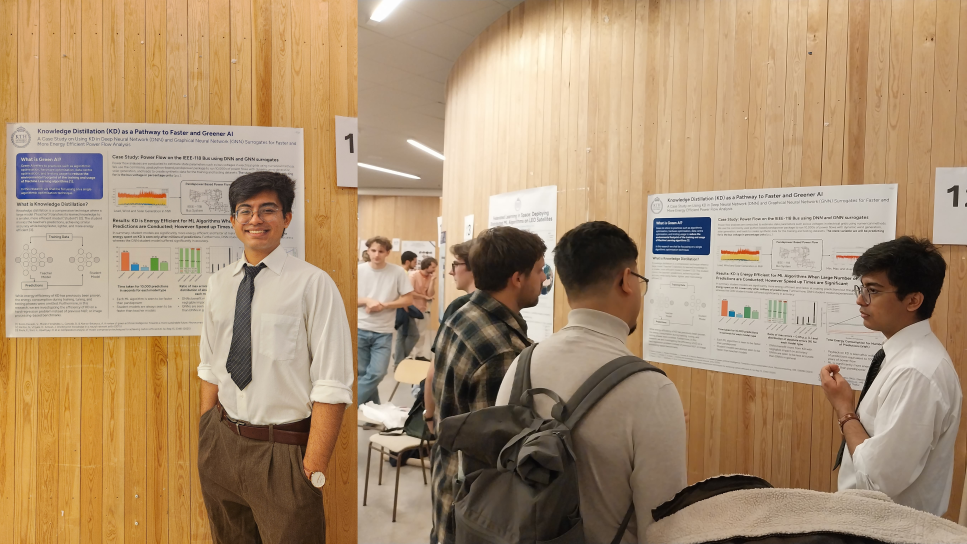Digital Futures interns drive AI efficiency and battery circularity research

Two Digital Futures-funded master’s students spent the summer at KTH’s Division of Heat and Power Technology under Jagruti Thakur, developing AI solutions for sustainability. One worked on minimizing AI’s energy consumption, while the other applied AI to improve the circularity of batteries.
Energy‑aware AI
Perez Yeptho focused on analysing the energy consumption of novel machine learning models being tested for power flow simulations. By profiling the power draw of different types of neural networks, as well as the energy invested in training these models, followed by knowledge distillation, a technique to create more compact “student” models, the research demonstrated that responsible practices to make AI more energy efficient can be effective in the real world with negligible loss in performance.
AI and LLMs for battery circularity
Harold Arteaga’s thesis explored how artificial intelligence can help gauge whether electric‑vehicle batteries are being reused and recycled effectively. The work led to a framework that combines predictive models with language‑processing tools to translate it into clear, policy‑friendly insights. By simulating regional trends, the project shows that Europe currently leads on battery circularity while other regions are catching up, and it demonstrates that AI can make these complex assessments faster and more transparent.
The work was funded by Digital futures , and it demonstrated that the projects not only delivered valuable technical advances, but also showcased how curiosity‑driven master’s students can contribute meaningfully to KTH’s sustainable energy research.
For more information get in touch with Jagruti Thakur .
